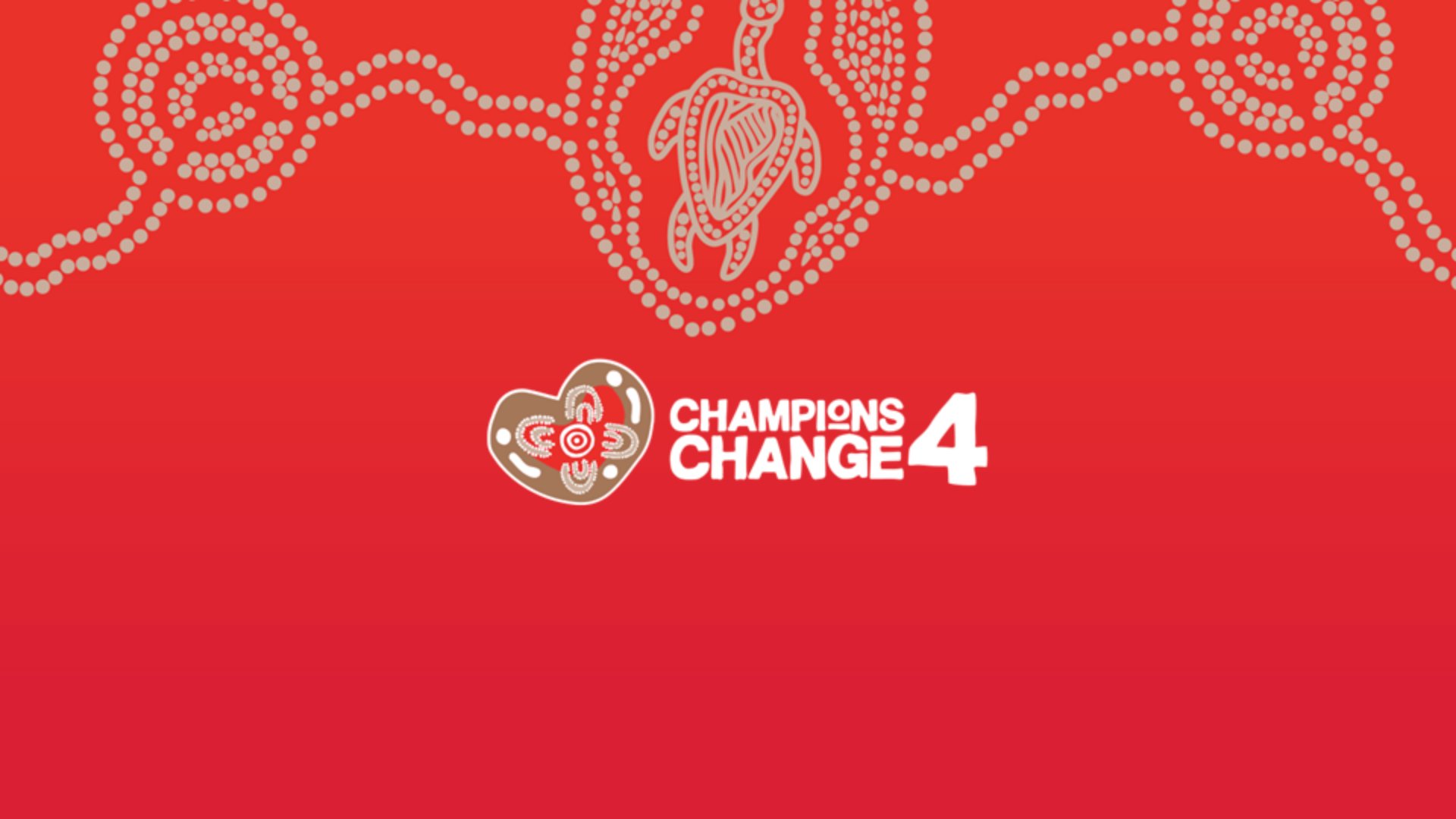
Champions4Change
The Champions4Change program is a national program that aims to bring together First Nations people with the lived experience of acute rheumatic fever (ARF) and rheumatic heart disease (RHD).
About the Champions4Change program
This program is built on respect and the strength of community voices, embedding lived experience and culture at the centre of care for people affected by acute rheumatic fever (ARF) and rheumatic heart disease (RHD).
- Led by lived experience: Champions4Change (C4C) is designed and led by First Nations people across Australia who have lived experience of ARF and RHD.
- Culturally safe support program: This program is a safe space for people living with ARF and RHD to share, connect, learn together and inspire others.
- Raising awareness: Champions share knowledge about heart health and ways to prevent ARF and RHD through their own ways of storytelling and community engagement.
- Speaking up for change: We create opportunities for Champions to share their voice, cultural knowledge, and lived experience to help improve understanding and care for people living with ARF and RHD.
- Culture at the centre of care: Everything the program does is guided by culture, community, and connection.
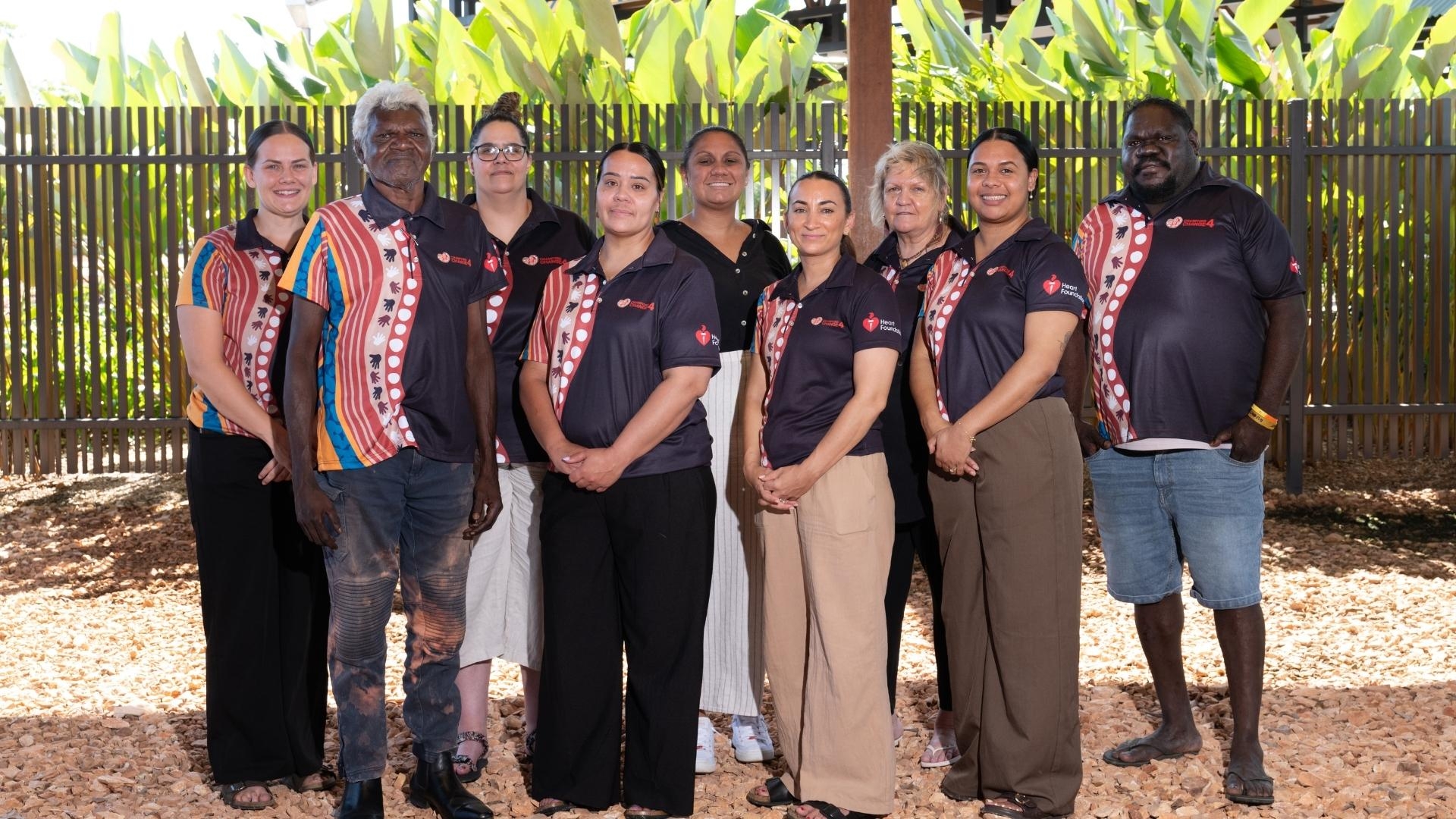
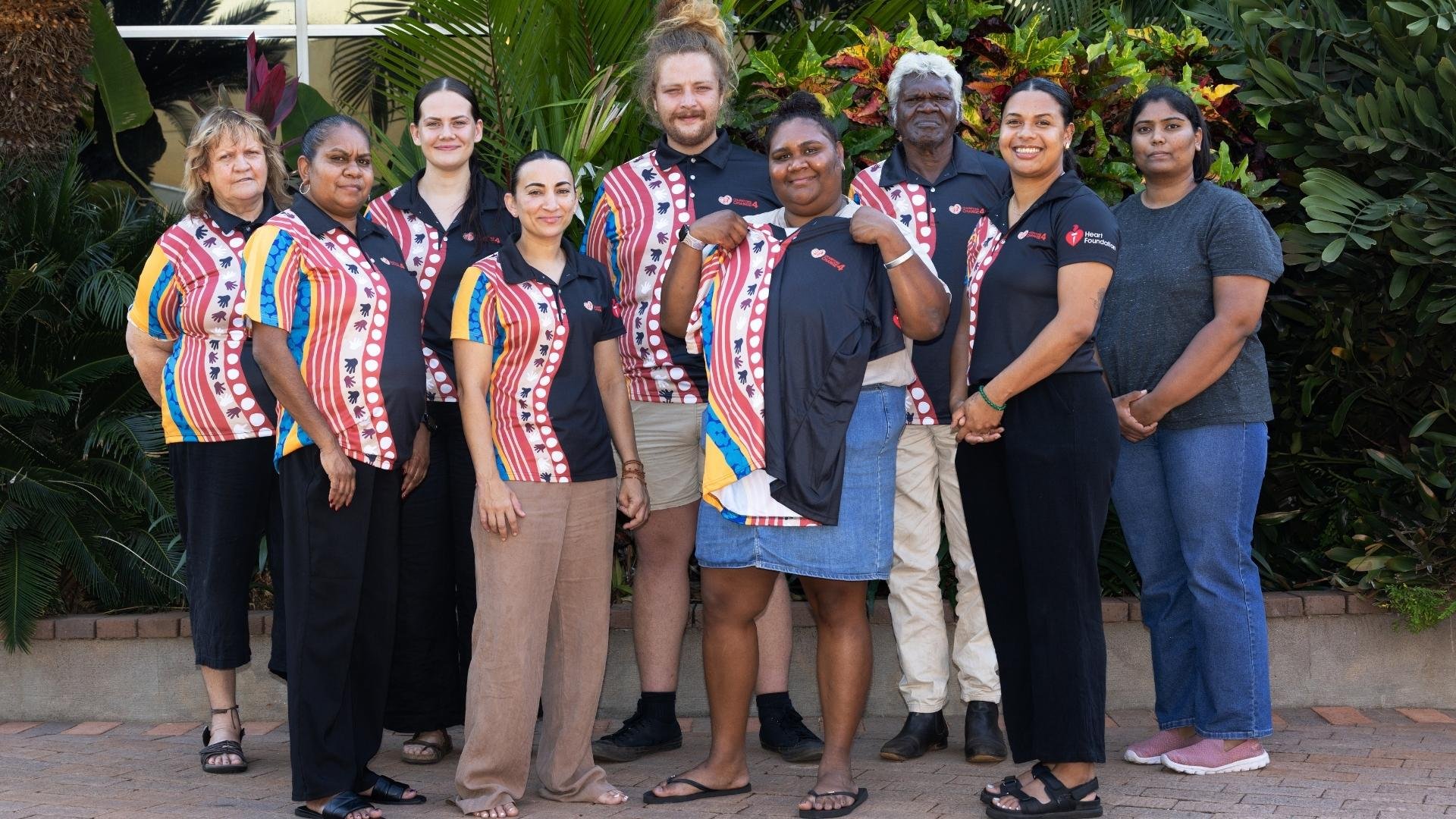
As a Champion, you can:
- Use your leadership, lived experience, and skills to inspire and help raise awareness about heart health.
- Help create culturally safe resources.
- Share your story in videos, posters, or by speaking at workshops and Champion events.
- Help run community education sessions and share info about ARF and RHD and ways to get good care - like pain-free needles and the importance of staying on top of injections to protect your heart.
- Learn new skills and grow by joining training activities and workshops.
Who can become a Champion?
To become a Champion, you will need to be:
- A First Nations person with lived experience of ARF or RHD.
- A person ‘with the lived experience’ of caring for someone for example, a family member who has ARF or RHD.
- Members of a community with high prevalence of ARF or RHD, a health care worker who supports patients with ARF or RHD and/or professional allies (friends) of the program who support the program and want to contribute to making lasting and positive change towards ending RHD.
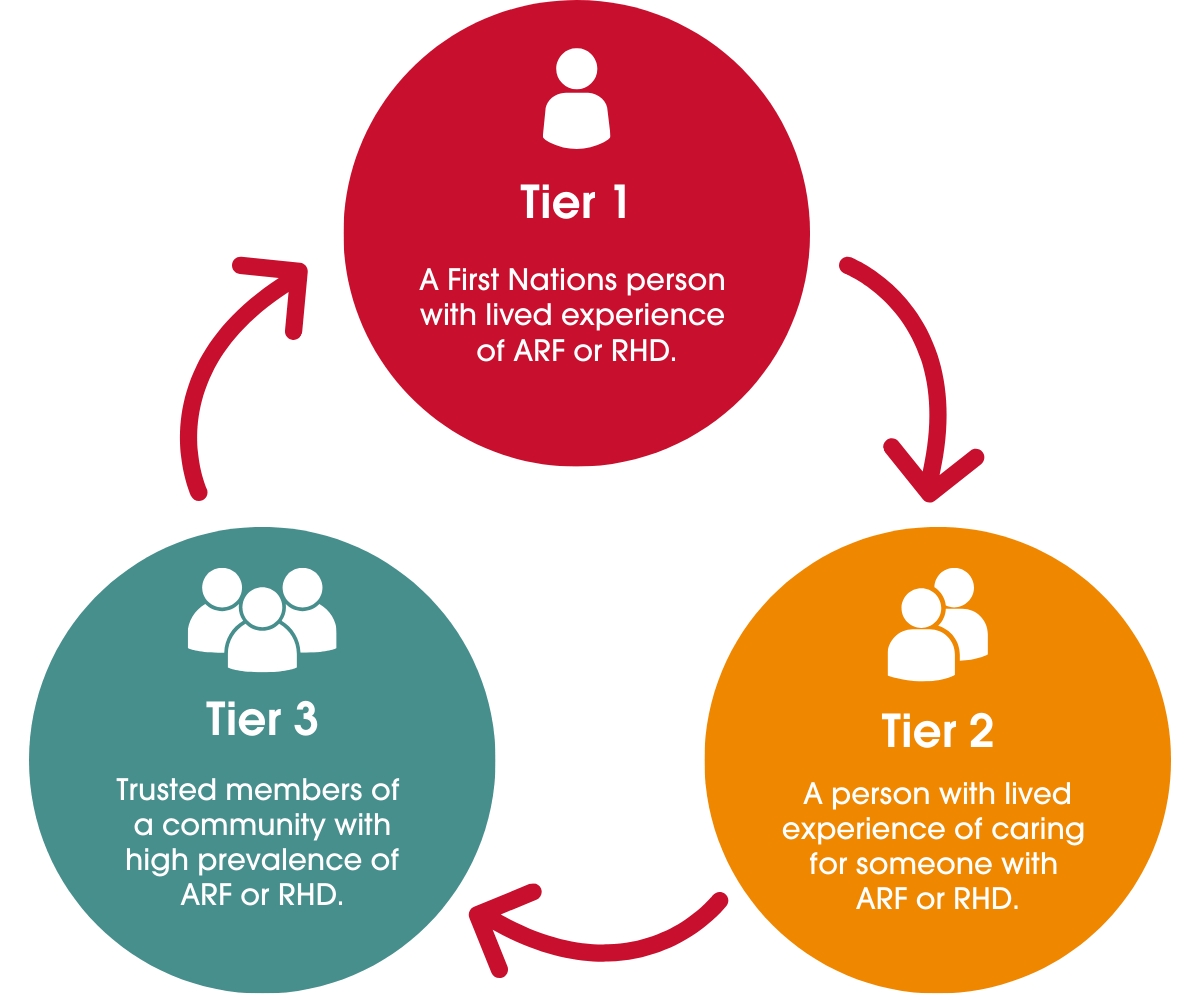
Supporting Champions to succeed in their roles
Having different tiers in the Champions4Change program means we can offer opportunities that fit each group’s needs and experiences. This way, Champions at every level get the right kind of support and chances to be involved.
The First Nations team will yarn with you all about the program, get to know your interests in the space of ARF and RHD and explore how we can best support you in a Champion role.
What Champions do for their communities
A Champion is a volunteer of the Heart Foundation who can choose the activities and opportunities they are interested to participate in.
Here are some examples of activities Champions have been involved in:

Awareness raising activities
Champions use their lived experience to raise awareness of ARF and RHD through activities like sharing stories in videos, speaking at events, and engaging with health professionals.

Resource development
Champions help create culturally appropriate resources for ARF and RHD education. Their input has shaped resources like an educational flipchart for health professionals and Champions to use, a community resource flyer, and Champions4Change program materials.
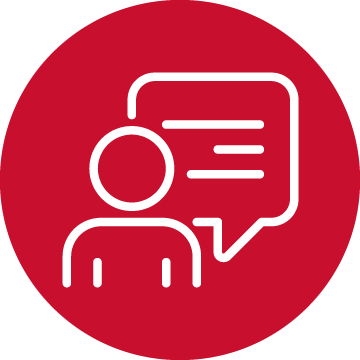
Training and upskilling
The program provides opportunities for Champions to build knowledge and confidence, supporting Champions to advocate for and raise awareness about ARF and RHD.
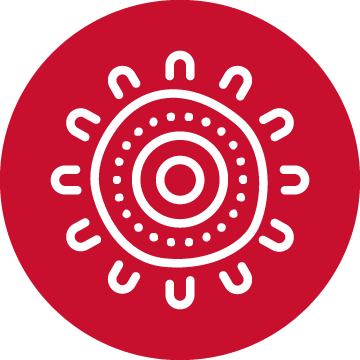
Building connections
Champions stay connected through an annual face-to-face workshop, online yarning sessions, monthly check ins from the program team and regular program updates via our newsletter.
With your support, we can build on the success of the Champions4Change program and make an even bigger impact by:
- Bringing the program to more communities where it is needed and embraced
- Helping more Champions use their voice to advocate for change through learning, training and confidence-building activities
- Strengthening support networks for Champions, their families, and community
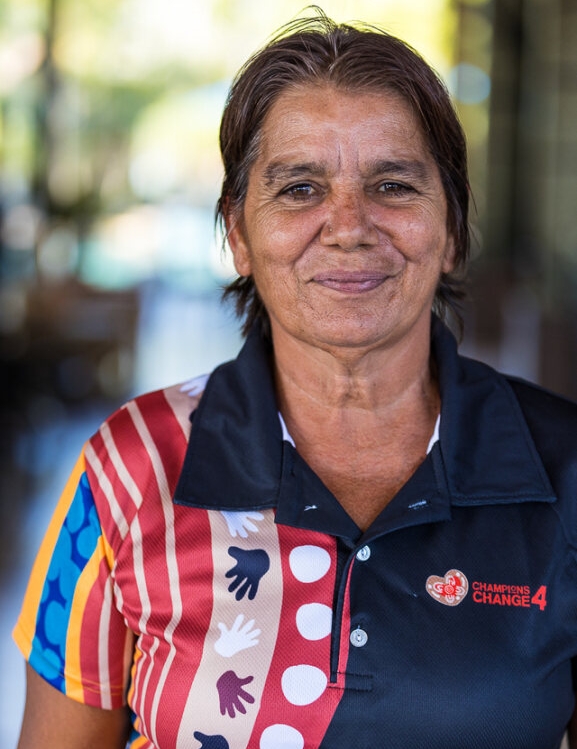
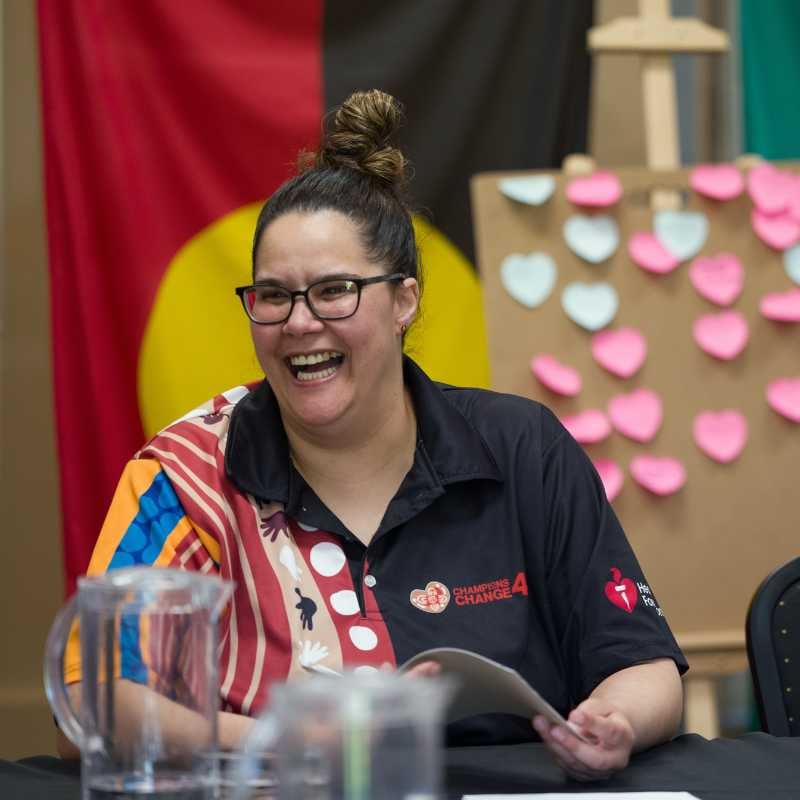
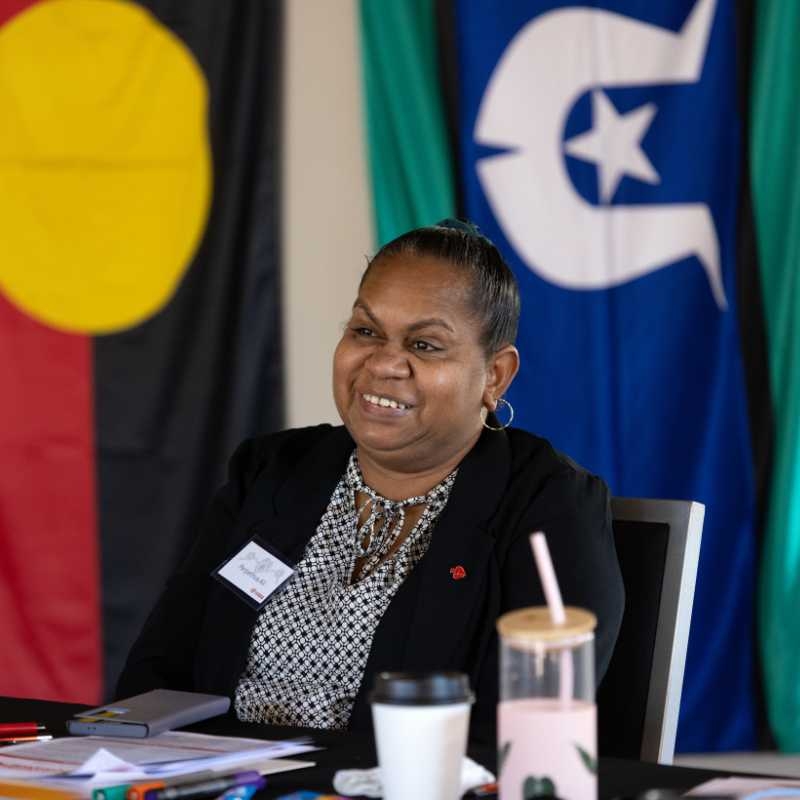
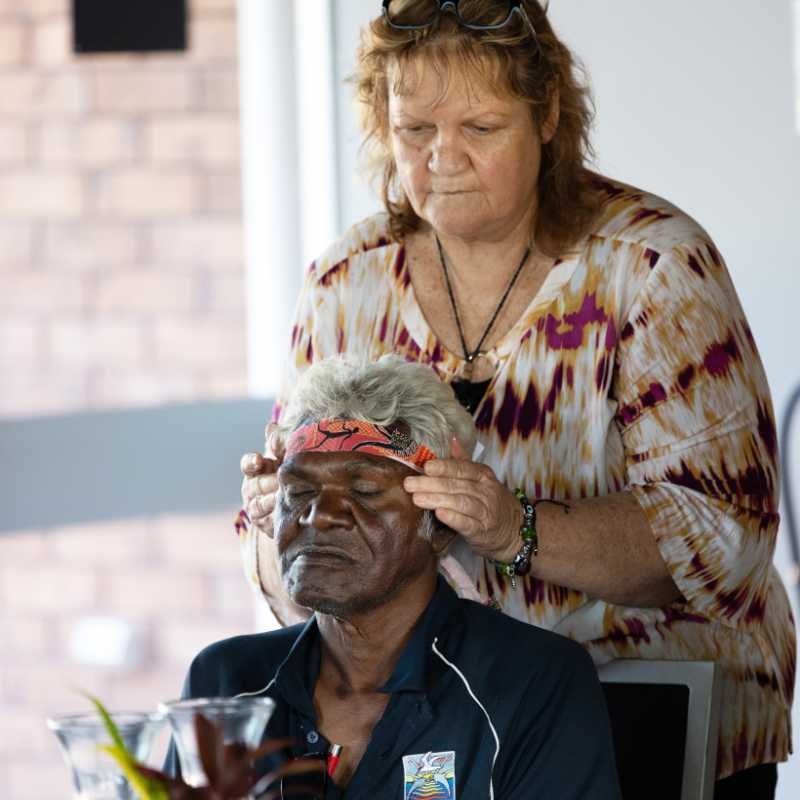
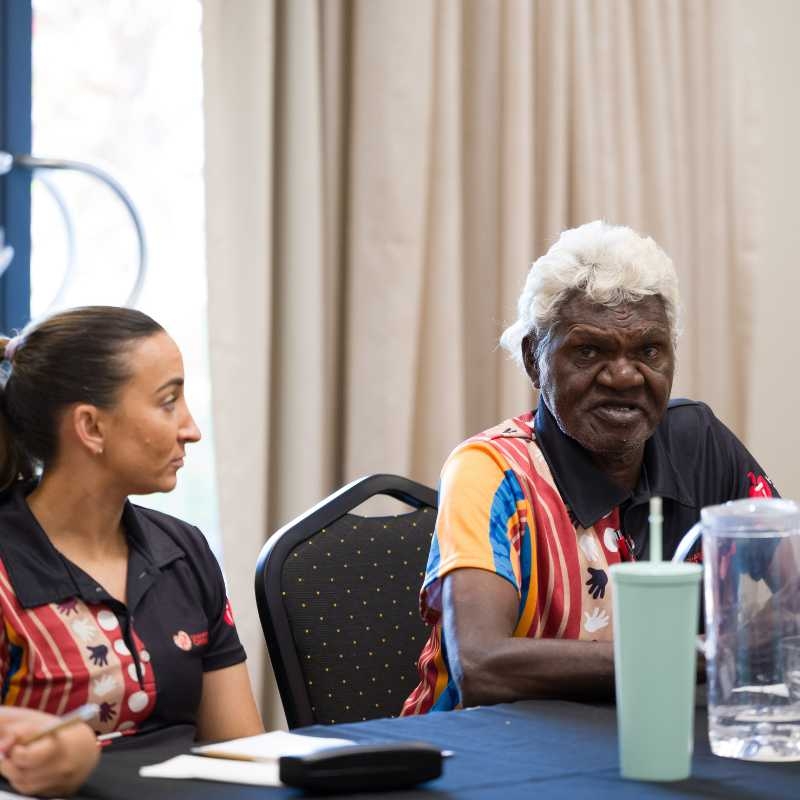
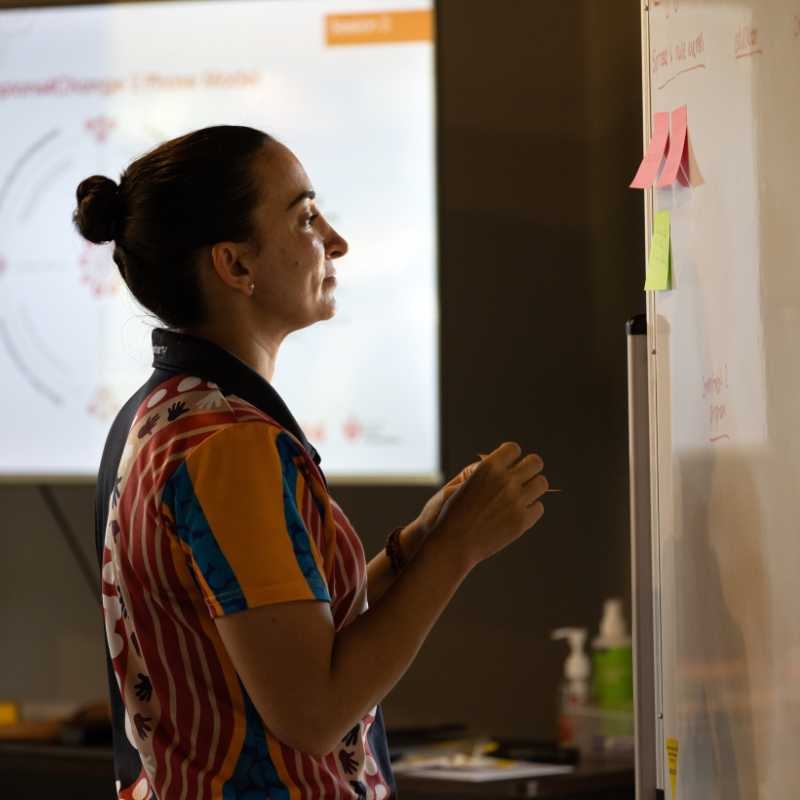
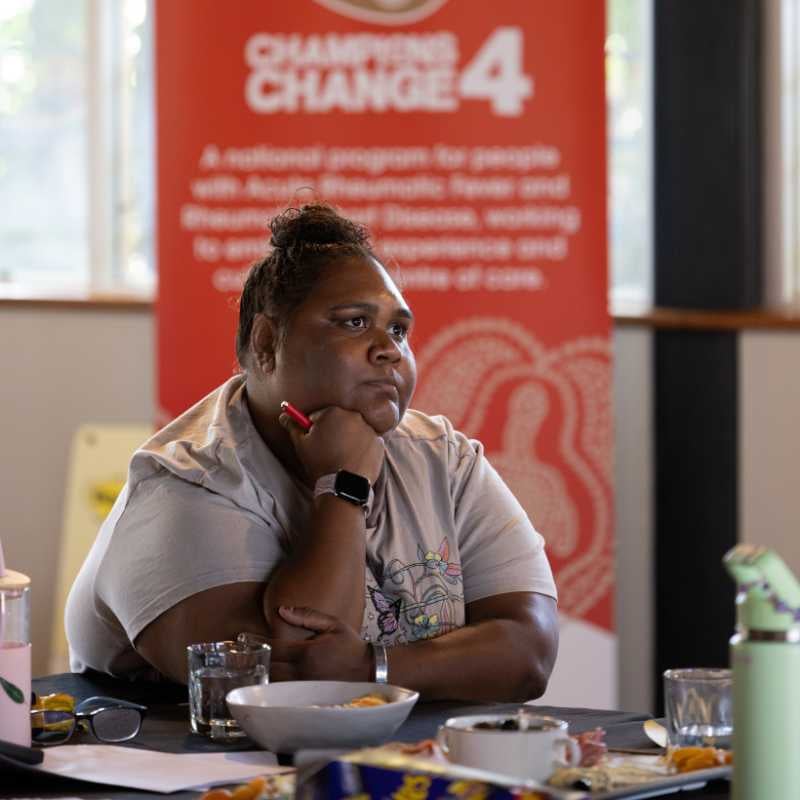
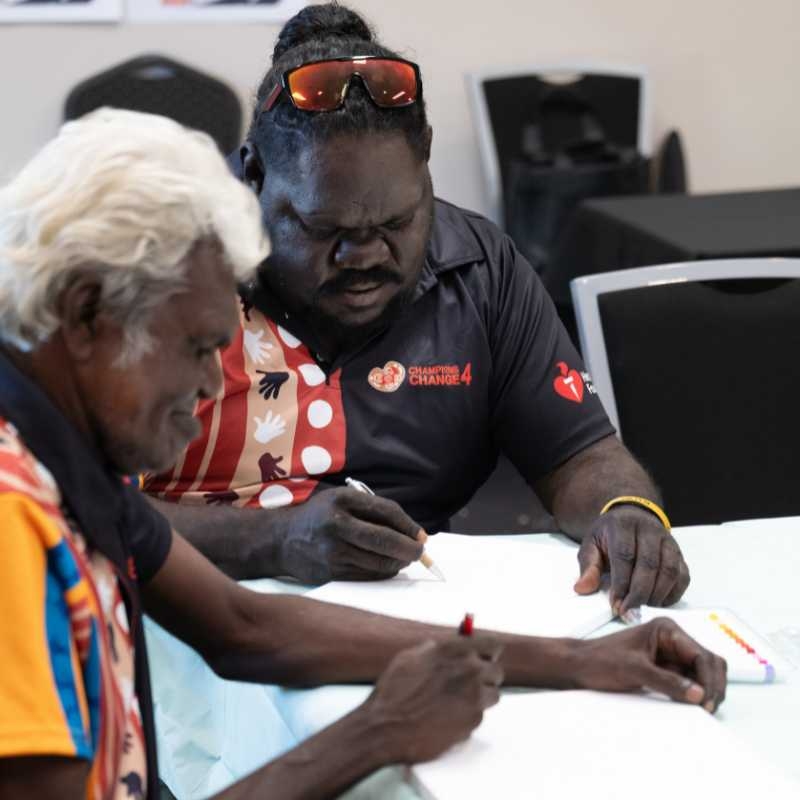
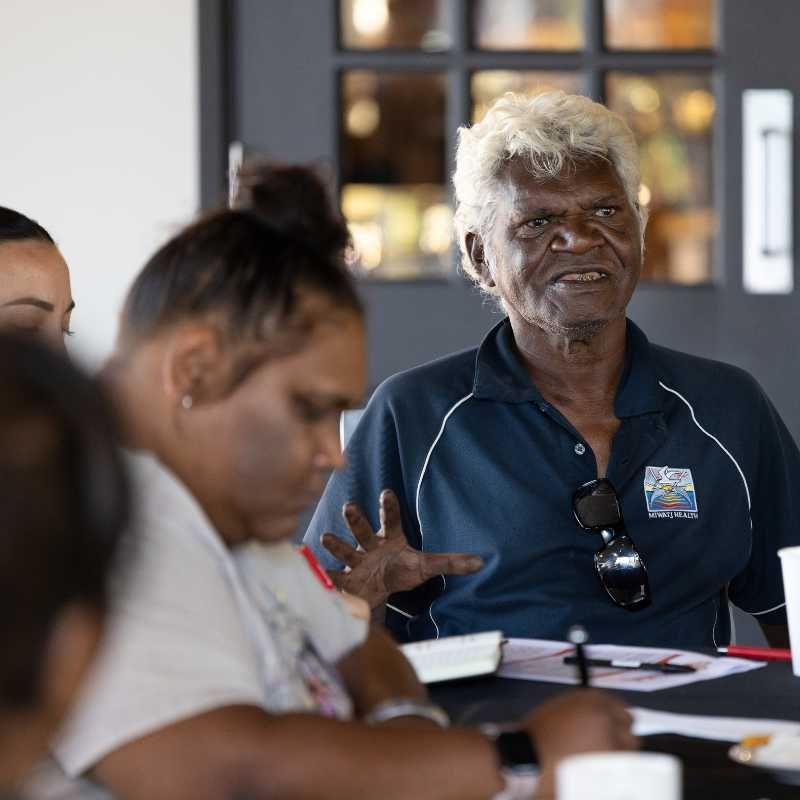
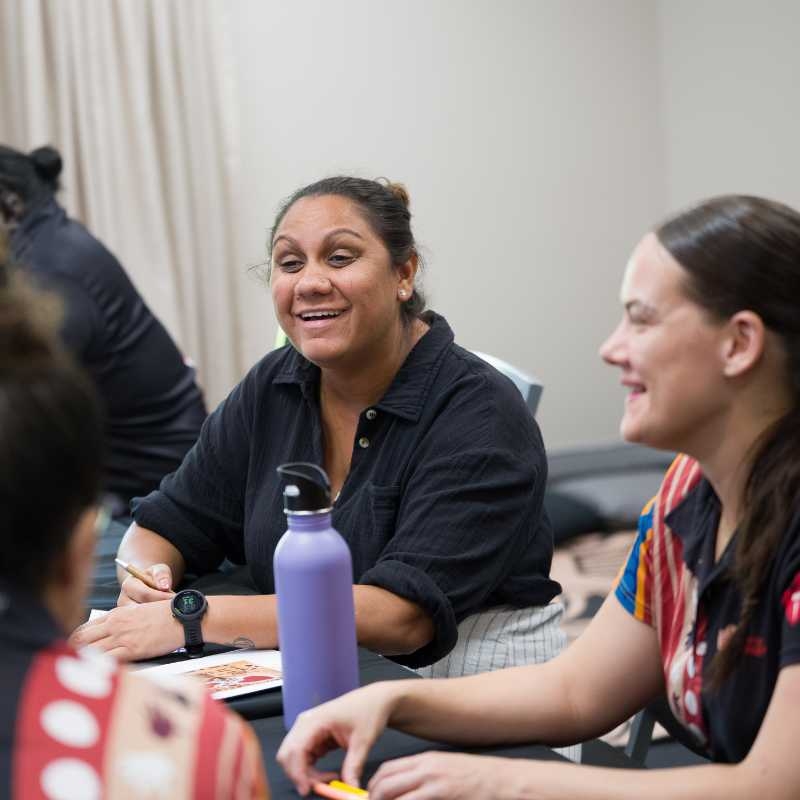
Where it all began
ARF and RHD are preventable conditions, yet Australia has some of the highest rates of RHD in the world, seen almost only in First Nations people. The Champions4Change program started in 2018 with RHD Menzies with a simple but powerful idea: real change happens when communities lead the way. Guided by evidence and grounded in self-determination, it was created to ensure that messages about ARF and RHD come from community led lived experience perspective.
Today, the program is proudly delivered by the Heart Foundation and aligns with part of the national RHD Endgame Strategy - Australia’s roadmap to eliminating RHD. Lived experience is an important part of this strategy, standing as one of the four key inputs to work towards a future free from RHD.
Program acknowledgements
The program began under the Menzies School of Health Research and is now run by the Heart Foundation’s First Nations Heart Health team to bring the program goals and vision to life.
Our impact is made possible by the commitment and support of our valued partners

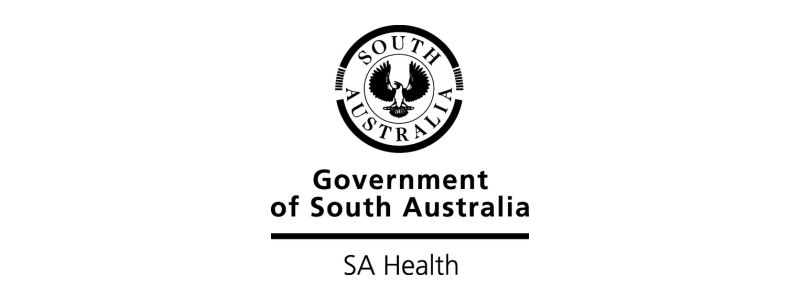
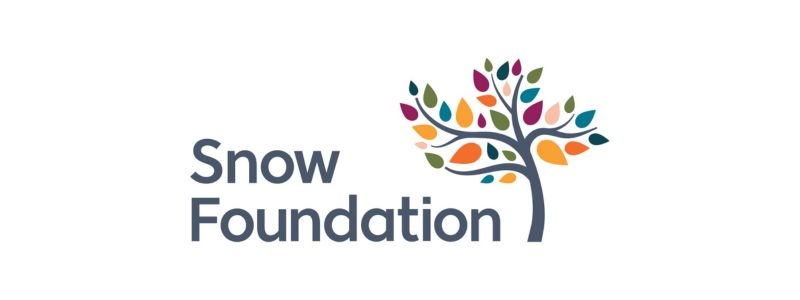
You might also be interested in...
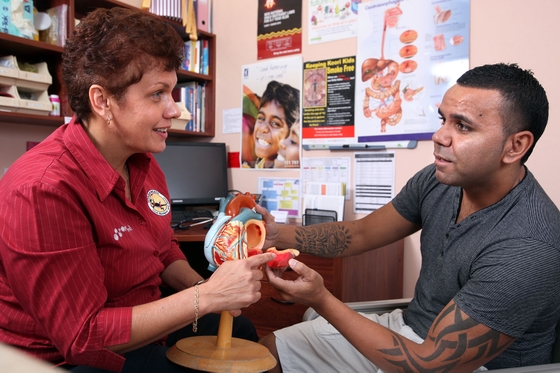
First Nations heart health
More First Nations people are impacted by cardiovascular (CVD) than other Australians.
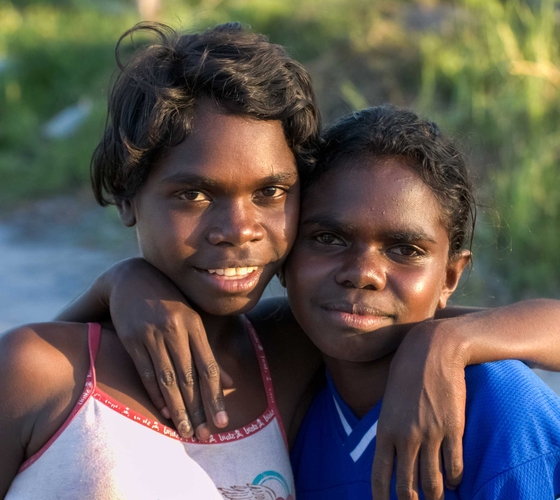
Acute rheumatic fever (ARF) and rheumatic heart disease (RHD)
Rheumatic heart disease is a serious disease that causes damage to your heart valves.
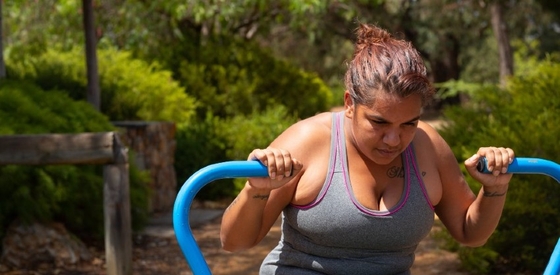
Looking after your heart
Preventing heart disease starts with knowing what helps keep your heart strong and what can hurt it.
Last updated19 January 2026